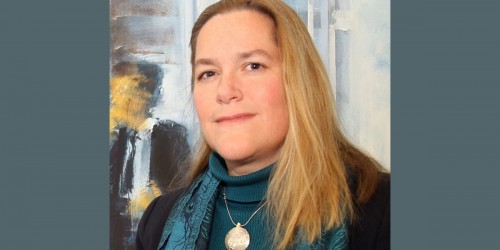
Laying the foundation for a more equitable future
An interview with Chantalle Byron, Research Assistant at The Leverhulme Trust, CPGS in Legal Studies
Professor Marie-Claire Cordonier Segger key speaker and one of the hosts at the Climate Law & Governance Day 2019
The event took place on Friday 6 December 2019, on Spain’s historic National Constitution Day. Over 300 participants from across the world gathered at the Faculty of Law at Universidad Autónoma de Madrid for the 5 annual Climate Law & Governance Day (CLGD) symposium alongside the UNFCCC COP25, marking the event the biggest since the inaugural CLGD in Paris alongside COP21 in 2015. Accredited by the COP25 Presidency, the day was led by the Climate Law & Governance Initiative (CLGI) consortium of over 120 partners, and hosted by leading institutions’ climate law experts, including national and local government agencies, UN and international organizations, law faculties, law firms and associations, and non-government organisations from the Universidad Autónoma de Madrid, the University of Chile, the University of Cambridge and the Centre for International Sustainable Development Law (CISDL).
Prof Marie-Claire Cordonier Segger, Executive Secretary of the CLGI and Full Professor of Law at the Faculty of Environment, University of Waterloo, CEENRG, will start on 1 January as Leverhulme Visiting Professor at the University of Cambridge. She emphasised the potential contributions of law and governance innovation saying:
“Climate change is the justice challenge of our time. To hold warming within 1.5 degrees worldwide calls for scaled-up ambition and action, across all professions and sectors of our economy and our society, right now.”
Session topics included: scaling up Paris Agreement implementation through climate legislation; exploring the effects of transparency in multiple-level climate governance; advancing ambition and compliance on climate change through law and governance innovations for sustainable investment and resilient oceans; advances in climate litigation; and prospects for a Global Climate Constitution.
The day culminated in two high-level plenaries, focusing on advancing Paris Agreement implementation through legal practice and negotiation, and enhancing climate change responses. The experts shared insights on strengthening legal foundations for climate ambition and compliance, with a focus on legal innovations and solutions in three key areas:
• Advancing Paris Agreement Innovations – New Rules for Transparency, Markets & Non-Market Instruments, Finance, Loss & Damage, Compliance & Safeguards;
• Scaling-up National & Regional Climate Legal Frameworks for Action – Effective Climate Governance, Ecosystems-Based & Human Rights Responses, Human Mobility & Climate Justice Litigation;
• Local & Global Interlinkages & Engagement – Climate Change in Regimes on Oceans, Biodiversity, Ozone, Civil Aviation, Trade, Investment, Peace & Security.
The COP25 event concluded with the announcement of the winning Climate Law & Governance essays and the first Climate Law and Governance Global Leadership Awards 2019. Closing comments followed from the UNFCCC Secretariat.
As COP25 negotiations will be closing this week, and key issues for COP26 begin to arise, the stage is being set for an enriching CLGD 2020 in Glasgow, UK.

An interview with Chantalle Byron, Research Assistant at The Leverhulme Trust, CPGS in Legal Studies

Marie-Claire, Lucy Fellow, receives the prestigious award for her outstanding legal scholarship, teaching and leadership